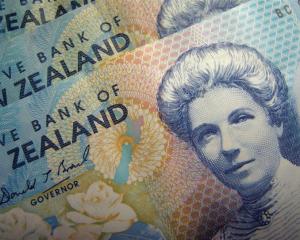A report on a "Students Occupational Choice Study", involving a gender diversity and research group at Auckland University of Technology (AUT), including Prof Judith Pringle, has focused on the occupational preferences of schoolgirls in Dunedin.
Surveys were conducted of 544 fifth-formers in the city in 1979, of another 403 in 1995, and of 297 year 11 pupils this year.
Auckland year 11 pupils (689 of them) were also included in the survey for the first time this year.
A report in the Sunday Star Times said that teenage girls in Dunedin were "dropping their law books and picking up scissors", according to the study.
The report said "despite large changes in society in the past 15 years", schoolgirls in the university city still wanted to be hairdressers, kindergarten teachers and air hostesses.
Mr Irving is writing a PhD thesis at the Otago University College of Education about social justice perspectives involving career education and guidance.
Approached for comment, he noted "hair stylist" had been the fifth most popular option in 1979, and the renamed "hairdresser" had been 11th in 1995 and was first in this year's survey.
He warned about the need for careful interpretation and to avoid indirect criticism of the hairdressing profession.
Hairdressing was skilled work, and its attractions included the chance to become self-employed, the portability of such skills, including the chance to work overseas, and continuing demand for the service even in difficult economic times.
Positive portrayal of hairdressing in reality television shows might have also added to its appeal, and changes in survey sample size could have played a part in the results.
Survey organisers said most of the big changes in career preferences evident between 1979 and 2010 in the Dunedin surveys had taken place by 1995.
In 1979, nine out of the top 10 professions involved female-dominated jobs, with air hostess most popular and "armed forces" the only traditionally male-dominated job, in fourth place.
By contrast, at least six of the top 10 ten in 1995 were in traditionally male-dominated professions, which was also the case this year, with lawyer, doctor, architect and chef among them.
Mr Irving said the study did not explain why those surveyed made their choices, and it would also be useful to see parallel data for male pupils.
It was important occupations, such as engineering, traditionally chosen mainly by one gender, ensured other people were welcomed and supported to take up such jobs.




